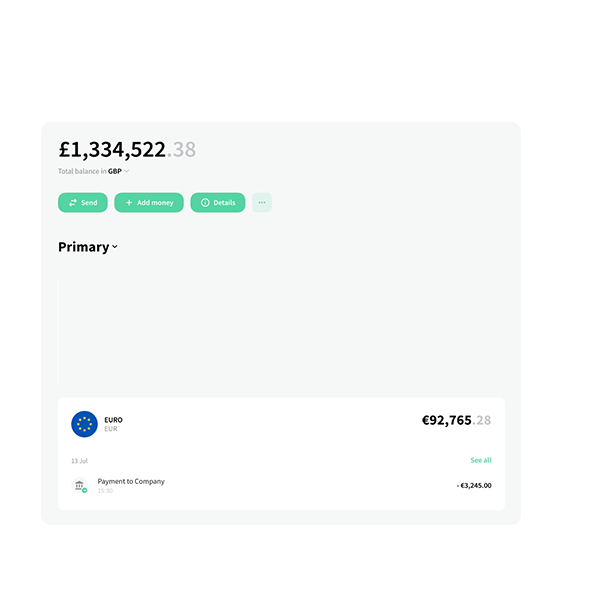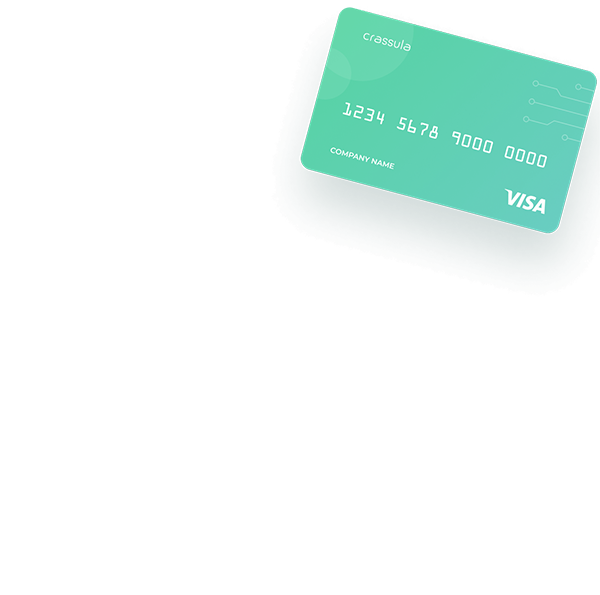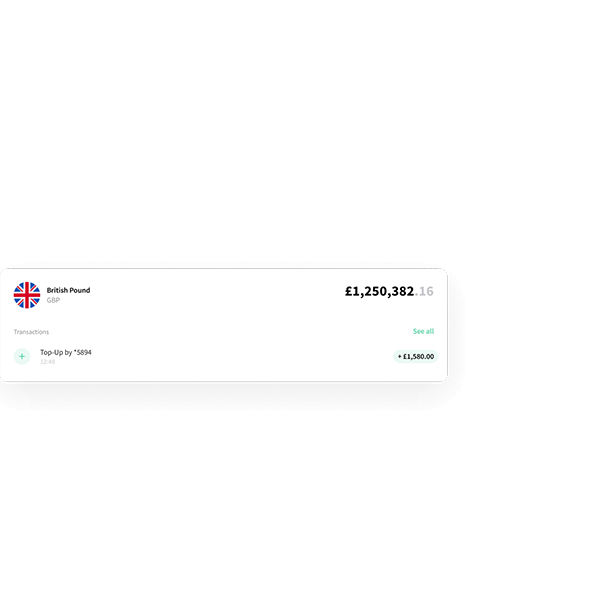Guide to Using Merchant Management System (MMS)
MMS is a web-designed and mobile service that provides instant access to the transactions data.



Companies that manage their merchants efficiently know that they need a straightforward tool to help them provide excellent service to their customers. Additionally, with the constantly increased competition in the market, it is becoming essential for companies to be the first in line to show success.
It is predicted that by 2027, e-commerce retail purchases worldwide will reach 8 trillion US dollars, so it is particularly important for businesses to be prepared with the right software to manage that load. A merchant management system (MMS), which can help them manage their work within one online space, could be just what they require. This is a simple guide on what merchant management software includes and how to use it.
What Is A Merchant Management System?
A merchant management system is a digital platform that supports companies that trade by ensuring order processing, transactions, spending, and inventory tracking during their business cycle. To allow timely merchant management, all the clients' information needs to be monitored and matched with their purchases.
An MMS also retrieves this information in real time, which is invaluable to any business. It can produce detailed receipts for both the merchant and the payment service provider. Most importantly, it gives businesses a thorough overview of clients' behavior and sales analytics. Hence, having operational merchant management software has become essential to many companies.
Let's discuss your project and see how we can launch your digital banking product together
Request demoThe Importance Of Implementing An MMS
Not only can all relevant business operations be completed in one place when using the corresponding software, but they are simplified with this platform. For example, instead of manual management and onboarding by a staff member, the MMS takes the load and completes many processes automatically.
Merchants' success depends on their ability to record and instantly access their purchase and order history, clients' behavior, and relevant analytics. Additionally, an MMS ensures straightforward customer management for merchants, all in one place.
An MMS is also a go-to application for agents to find and choose relevant merchants in a selected area, as well as for recording and managing new and existing merchant profiles. An MMS can also perform performance reporting regarding the team's efficiency.
Finally, additional sources of revenue can emerge when using an MMS. This, for instance, can be demonstrated when you realize that your team has freed up time for sales instead of doing administrative work.
Key Features Of Merchant Management Software
Some of the MMS central features include ways to provide intelligent analytics, easy access from a mobile device, the ability to use it with different software, and more. Here is our detailed overview of some of the most important attributes of a merchant management system.Comprehensive Reporting and Analytics
An MMS offers a range of filters for reporting purposes. Sorting functionality is also included, and multiple options can be used in real time. A search function should be used if one desires to query for relevant results on the name of a service, a merchant, a transaction date, and other related data.
Detailed reporting functionality is vital to working with large accumulated data over time. With that, users can retrieve custom analytics reports easily, analyze them, and modify the ways that reports are displayed. Once a report is retrieved, a sophisticated analytics dashboard is available in many MMSs. Users can select custom metrics and display what is essential to their trade, such as sales analytics. This helps companies predict their success and make relevant business decisions.
Mobile Compatibility
In 2024, it is essential to be able to provide an easy payment service to mobile customers. With an MMS, mobile transaction processing has never been easier. Payments can take place offline if needed, and transactions would then occur once internet access is available. Payments, tips, and refunds can all be made on the go using a mobile device. Customers will then receive digital receipts via SMS or email.Flexible Integration Options
Many payment service providers are present on the market, and an MMS can integrate them using relevant plugins. Typically, when setting up such integration, users can select a preferred payment gateway for their business needs and connect it to their system with minimal effort. By integrating a payment gateway, secure customer and payment data processing occurs between the e-commerce platform and the payment service provider.Smart Transaction Routing
This functionality ensures that a transaction is automatically directed to the payment channel, a bank, or a payment service with the highest potential to accept it. Smart transaction routing is provided by an intelligent process with considerations of where the customers are located, what type of currency and cards they use, and what bank is likely to accept the payment. This multichannel integration is an excellent feature to secure high transaction acceptance rates, better revenue, the lowest possible transaction costs, and an improved user experience.Cascading Capabilities
If transactions get declined through one channel, the cascading functionality of the merchant management system helps to direct them to other payment channels automatically. This process is triggered with each decline without customers needing to manually re-enter their details. It is a tool that significantly increases the chance of payment acceptance and can provide a better user experience. It also contributes considerably to generating more revenue by accepting payments and saving on fee costs for initially declined transactions.Smart Invoicing
If your merchant management system provider does not offer smart invoicing, you are missing out because you could have saved plenty of time and money with this tool. Smart invoicing means you can modify your fee structure based on the customer you are dealing with rather than charging a set fee for all. You could flexibly change the sum charged based on the customer's type (e.g., industry). Then, the customer gets charged automatically and smoothly, with the fees applicable at the end of the payment cycle. Smart invoicing makes a difference in final revenue in every way. It saves efforts such as manual fee setup and invoice management by staff, frees up more time for their other tasks, and, through fee flexibility, contributes to customer growth and increased loyalty.Inventory Management
Inventory tracking is also easy and efficient with an MMS. The feature will help you record, modify, and enhance inventory records. Many businesses need to have live access to goods and prevent them from going out of stock. With access to inventory reports and alerts, companies can have an overview of what their clients need so they can supply that in a timely manner. You can set up alerts to notify you when goods run lower than a certain level. Then, a straightforward reorder process can follow, sending a request to your supplier. This will save you time and likely bring you another happy customer who will benefit from your stock.Customer Relationship Management (CRM)
An MMS offers all the tools for successful customer relationship management. Merchants can keep track of clients’ activity and sales, easily manage customer records, send them marketing emails through relevant lists, and even generate invoices. Even more, they can also generate leads that arrive through a web form, and convert them to clients, all in one place! Sales analytics can be used to understand what is going well and where client relationships require some improvement.Types of Businesses That Should Use Merchant Management Services
It is no secret that merchant management solutions can benefit many businesses. These include payment service providers, banks, independent sales organizations or sales offices, etc. Why should all of these businesses use merchant management software? Below are a few simple reasons.PSP/PayFacs
Payment service providers require straightforward day-to-day merchant management. Services that they offer include the following:- Setting up merchants' accounts.
- Allowing for a range of payment methods and currencies.
- Verifying transactions.
- Communicating with the card providers.
Some of these processes traditionally involved manual work. Yet, MMSs simplify merchant management dramatically. PSPs/PayFacs can significantly reduce their time and operational expenses with efficient new merchant acquisition, quick but reliable automated verification, and good tracking of existing merchants and engagement with them as needed.
The day-to-day success of their teams and merchants can be easily assessed with one software.
Banks
It is not widely known, but an MMS can be easily integrated with the core software used by a bank. Countless flexible options available for customization on payments pages allow banks to choose what is best for their growth and client base. Regarding security, merchant management software would use the latest fraud prevention technology to identify suspicious payments and help maintain the relationship between the banks and their customers.
This software allows custom transaction routing, which positively affects banks' payment activity in relevant regions. The system can also add state-of-the-art payment providers, which shows that banks follow the latest trends and adjust to their customers' demands.
ISO/MSP
ISO/MSP businesses need to get new merchants onboard and manage existing ones efficiently. The ease of use of merchant management software strongly supports this challenge. It will help bypass the traditionally manual and, therefore, time-heavy document collection, verification, and approval procedures. Clear and easy reports will provide an excellent overview of how each of the merchants is doing and what transactions went through or have been declined.
With automation and reduced time and costs, companies can focus on what really matters to them – enhancing their customers' pipeline.
How Can Merchant Management Solutions Benefit Your Business?
An MMS is a comprehensive solution that offers many benefits to businesses. Would you like to know what they are? Here is our selected list of advantages of an MMS:- Data and process security. Such solutions ensure that all transactions use secure authentication, implementing the latest security standards. There will be no worry about data being stolen or the system being hacked.
- Smart integration and choice of payment providers. If you want to make your customers happier, use an MMS because it integrates many different payment providers in one application. It then prompts customers to the most suitable payment gateway, which will likely make their transaction take place promptly and efficiently.
- Merchant onboarding. Forget about manual verification: software can do it for you, using a smart and secure verification process to bring all merchants into one place. With an MMS, you can also easily migrate existing merchants from another system.
- Merchant management is done easily. A single solution gives agents access to merchants' searches in nearby locations; it helps to select the right merchants based on chosen criteria. But that is not all. You can also assign customized fees to each merchant based on your business needs and produce settlements alongside payment reports.
- Keeping track of merchants' productivity. An MMS allows users to control merchants' productivity and time use. It will inform users about merchants' performance and contribute to work optimization.
- Customers' loyalty. Straightforward transactions, support of mobile payments, ease of navigation, and solutions through potentially declined payments will all help build up customers' trust and motivate them to return.
- Revenue increase. A merchant management system provides merchants and their customers with a solution that efficiently covers their business needs and makes them stand out among others. This allows for their growth and enhanced profitability.
Choosing The Right Merchant Management Software For Your Business
How do you decide which system is right for your business? We recommend picking your MMS with your business goals in mind. The most essential features that you should pay attention to when selecting an MMS are as follows:- Advanced reporting. Your merchant management solutions would serve you best when providing reporting tools that will allow you to analyze and improve your business productivity.
- Ease of merchant acquisition processes. When you bring a new merchant on board, you want your MMS to ensure they are compliant and verified smoothly.
- Data fraud prevention. Security is key to any online operation, so an MMS should use the latest protocols for security and guard data efficiently.
- Inventory tracking functionality. An MMS would help you manage your supplies and avoid going short on products you could provide your customers with.
- Mobile payments. If you know that many of your customers prefer using mobile phones, you should make sure that an MMS you implement caters for them and allows for mobile payments.
- Regular software updates. Implementing a dynamic MMS that is continuously improved by solving issues and offering new integration options would mean that you have an efficient technology to hand at any time.
- Integration with existing systems. Consider what systems you currently use and whether you need to integrate them with your new MMS. The most popular business software is easy to connect with many solutions.
The Rising Demand For MMS
According to McKinsey’s data, small and medium-sized businesses (SMBs) spend less than 10% of their budget for applications and services on payment acceptance. The rest is distributed between other services and tools, including business management software that covers a wide range of company processes.
But what if there was a single solution that catered for many, if not all, of SMBs' day-to-day operations? An MMS is precisely what could do the job, so the need for such solutions will rise in the coming years and for all business sizes.
Final Thoughts
In short, the merchant management system is an essential all-in-one solution for those who want to manage their trade efficiently. It offers many benefits to businesses of all levels with its key features, such as simple sales analytics, customer management, relevant integrations catered to your needs, reporting tools, order processing, and inventory management.
It is a tool that will benefit not just businesses but, most importantly, their customers, who will be satisfied with the smooth service and become loyal clients. Furthermore, MMSs will become more and more popular with rising customer demands and advancing competition. If you are still considering whether you require white-label merchant management software for your business, we hope this guide is useful to you.





